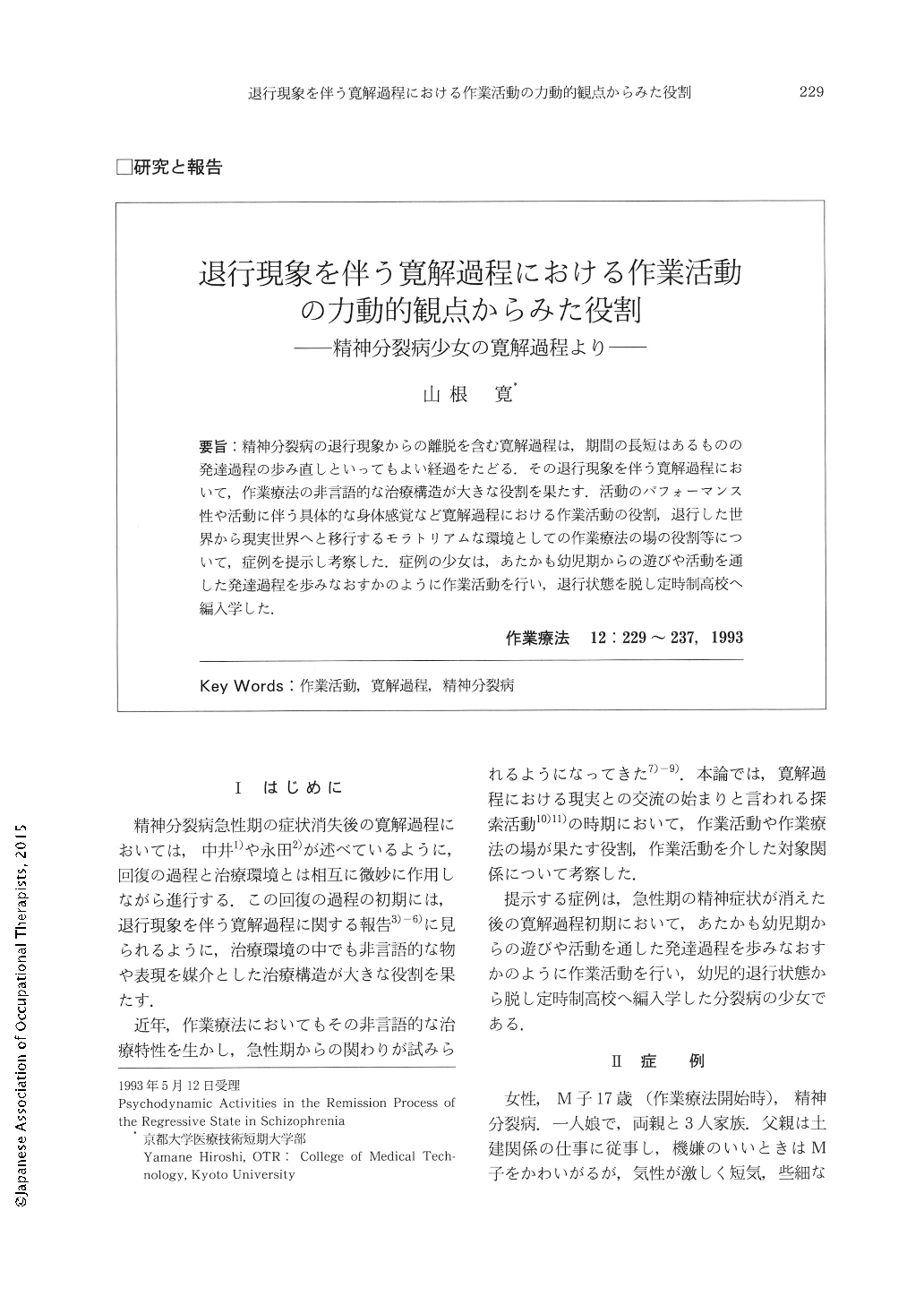Japanese
English
- 販売していません
- Abstract 文献概要
- 1ページ目 Look Inside
- 参考文献 Reference
- サイト内被引用 Cited by
要旨:精神分裂病の退行現象からの離脱を含む寛解過程は,期間の長短はあるものの発達過程の歩み直しといってもよい経過をたどる.その退行現象を伴う寛解過程において,作業療法の非言語的な治療構造が大きな役割を果たす,活動のパフォーマンス性や活動に伴う具体的な身体感覚など寛解過程における作業活動の役割,退行した世界から現実世界へと移行するモラトリアムな環境としての作業療法の場の役割等について,症例を提示し考察した.症例の少女は,あたかも幼児期からの遊びや活動を通した発達過程を歩みなおすかのように作業活動を行い,退行状態を脱し定時制高校へ編入学した.
The subject is a 17-year-old girl with schizophrenia in the regressive state. In the occupational therapy room, she spent the time smearing colors on line drawings for coloring, squeezing clay, or cutting paper like a little child. Then, after taking an admission test, she was admitted into a high school. We may say that the remission process for the regressive state in schizophrenia reiterates almost the same process as the infantile developmental process. The non-verbal approaches, in occupational therapy, are important throughout the whole course of remission. Especially, in the regressive state, the combined use of psychodynamic activities and object-relationships is important. Then the development of ego strength can occur to the extent that one's regressive behaviors are accepted and one's infantile dependency needs are gratified. Occupational therapy can offer opportunities to gratify these needs through activities. So far, it seems, however, that the study of non-verbal approaches and object-relationships through activities has been superficial. Therefore, through showing one case, the author considered the individual meanings of action (occupational performance), somatic sensation and object-relationship in relation to the stage of remission.

Copyright © 1993, Japanese Association of Occupational Therapists. All rights reserved.


